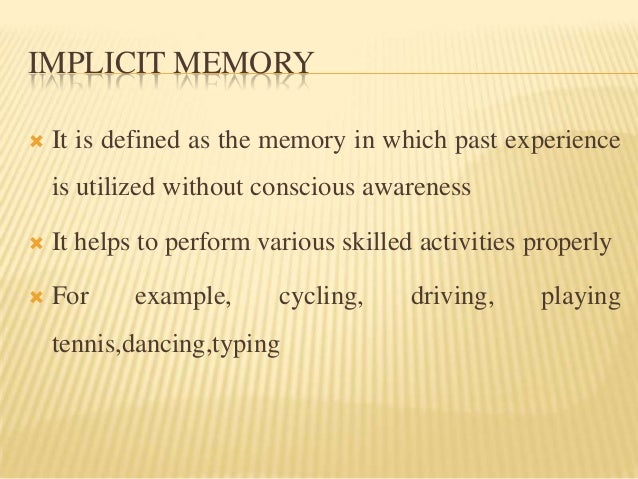

You don't have to try to recall the things that are in implicit memory.

The definition of implicit memorymay be identified by its other names implicit memory may also be referred to as “unconscious memory” or “automatic memory.” When you are asked to define implicit memory, you could say that it is the long-term memory of things that you do automatically every day, without conscious thought. Implicit and explicit memory also differ in memory disorders that affect them, how memories are developed, and how doctors will test for memory disorders. They differ in what types of memories they involve, how those memories are retrieved, and what part of the brain structure they make use of. Implicit memory and explicit memory at the two types of long-term memory, and are very different in a host of ways. There are two main sub-categories of long-term memory, called implicit memory and explicit memory. It is also the memory responsible for your ability to recognize and understand words and numbers. It is the memory responsible for your ability to recognize people and places. Long-term memory is the type of memory that operates when you recall past events or things that you have learned. Often the type of memory that is affected by the disorder is a clue, in itself, that can lead to a thorough evaluation and proper diagnosis. Memory disorders can affect one or more aspects of either or both short-term and long-term memory. There is a short-term and long-term memory, which are both split into several different categories of their own.

Many people are often confused about the different types of memory, and what their functions are.


 0 kommentar(er)
0 kommentar(er)
